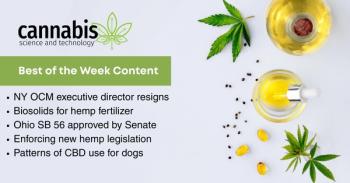
Psilocybin Rule Update: Oregon’s Newly Released Regulations
The beginning of 2023 will be a huge step to the US’s legalized psilocybin industry! Oregon Psilocybin Services (OPS), a new section housed within the Oregon Health Authority (OHA), will begin accepting license applications January 2, 2023. Oregon’s legalization and implementation of regulations will take three years altogether—several years may seem too long for the legalized psilocybin roll out, but better late than never. This should give the department plenty of time to draft, edit, edit some more, then implement the nation’s first regulatory framework for psilocybin.
The Oregon Health Authority (OHA), Public Health Division, has released their proposed psilocybin rules. These rules are necessary to execute the Oregon Psilocybin Services Act. The proposed rules began with how the adoption of the rules can impact racial equity, fiscal and economic impact,and the cost of compliance. The proposed rules include standards for the types of licenses, types of psilocybin products, cultivation and production standards, health and safety expectations for workers and end consumers, training curriculum requirements, product testing, and more. The proposed regulations have plenty of information, so for this blog Allay Consulting looks further into the licensing and manufacturing requirements within these regulations.
Licensing Types
- Manufacturer License: Allows the licensee to manufacture, plant, grow, cultivate (indoor only), harvest, produce, prepare, propagate, and package and label psilocybin mushrooms. Manufacturing licenses have three endorsement types: (a) Fungi cultivation, (b) Psilocybin extraction, and (c) Edible psilocybin production.
- Service Center License: Allows the licensee establishment to administer psilocybin sessions and further support during the session. Under this license, the recipient individual receives their psilocybin and associated therapy during the experience. The service center will provide preparation to the individual, followed by administration, and then integration.
- Facilitator License: Allows individuals to conduct psilocybin services at the licensed service center.
- Laboratory Testing License: Allows facilities to test psilocybin products. Products must be tested for microbiological contaminants, pesticides, other contaminants, solvents and residual solvents, and psilocybin concentration.
Manufacturing Allowances and Restrictions
Species Allowance: There is a limitation on allowed species under the proposed regulations. The noted allowed species are only Psilocybe Cubensis. The proposed regulation further states, “Psilocybe Cubensis has been recommended as a safe species of fungi, and it is the only species allowed under the rules.” Psilocybe Cubensis is the most psychedelic mushroom species. Don’t fret–there are plenty (hundreds) of strains that fall under the Psilocybe Cubensis.
Cultivation Restrictions: Manufacturer licensees are prohibited from using manure and wood chips. Manufacturers may not produce psilocybin by using genetically modified organisms such as bacteria and may not produce psilocybin by chemical synthesis. Also, manufacturer licensees are prohibited from applying pesticides to fungi or to the fungi growing medium in any way.
Manufacturer Requirements: Manufacturing licensees must use food-grade equipment and other product-touching surfaces. These product-touching surfaces must be easily cleanable and safe to use in sanitary operations. Psilocybin products must have an assigned process lot and harvest lot unique ID number that are stored in a locked area. All process lot and harvest lot numbers must be entered into Oregon’s Psilocybin Tracking System. Similar to cannabis regulations, licensees cannot produce, transfer, or sell products that appeal to minors, products that are modeled after non-psilocybin products primarily consumed by minors, or products in the shape of animals, vehicles, persons, or characters.
Manufacturing Method Limitations: The proposed regulations place limitations on extraction methods to include water, vegetable glycerin, acetic acids, ethanol, and methanol as solvents in extraction. Other solvents are prohibited, with a specific notation that denatured alcohol is not allowed. The proposed regulations include further restrictions regarding pressure and heat: a manufacturer may not apply pressure or heat over 140 ᴼF when manufacturing psilocybin extracts.
Restrictions on Adulterants: The drafted regulations state, “a licensee may not add to psilocybin products any chemical, drug, plant, or substance that has the effect of altering potency, intoxicating effect, duration of effect, toxicity, or potential for excessive use, including but not limited to monoamine oxidase inhibitors (MAOIs), beverage alcohol, or cannabis. A psilocybin product that has added chemicals, drugs, plants, or substances that alter the potency, intoxicating effect, duration of effect, toxicity, or addictiveness is considered adulterated.”
Methods of Use: OHA has placed limitations on the type of psilocybin products allowed to include only orally ingestible products. Other methods such as transdermal patches, inhalers, nasal sprays, suppositories, and injections are prohibited.
Manufacturing Extraction Safety Measures: The licensee must have adequate ventilation controlling all sources of ignition where flammable vapors may be present, only use potable water if using water extraction method, install eye wash stations and emergency showers when working with solvents, provide personal protective equipment, and train their staff on the safety of extraction.
Manufacturing Records and Other Documentation: To no surprise, it’s proposed that manufacturer licensees are required to keep records of the following, including, but not limited to: manufacturing instructions; ingredients; procedures; solvents (use and handling); procedures for conducting necessary safety checks prior to commencing production; cleaning and sanitation; procedures for preventing growth of pathogenic organisms and toxin formations; proper disposal of any waste; and emergency procedures in case of fire, chemical spill, or other emergencies. Requiring basic current good manufacturing practice (cGMP) principles will result in more compliant products, which benefits both the industry (decreases liability) and the end consumer (decreases in safety issues and increases in quality!).
Required Testing: Similar to state level cannabis testing requirements, the proposed regulations include testing for psilocybin. Below is a list of the proposed testing requirements:
- Speciation testing: ensuring the psilocybin is derived from the Psilocybe Cubensis species
- Potency testing: concentration (potency) of psilocybin and psilocin in the product
- Solvent testing: methanol or acetic acid solvents are used to manufacture psilocybin extract. A manufacturer must order tests for these solvents.
- Pesticide testing: upon written request by the Authority
- Contaminate testing: upon written request by the Authority
- Heavy metals testing: upon written request by the Authority
Still More to Consider
Now I know it seems amazing and exciting that there are actually regulations for psilocybin use being written, but there are major items being left out that may need to be addressed. Here are my top three examples of things that I believe should be addressed. Many people are discussing these items in the Oregon Psilocybin Advisory Board workgroup and in public comment. Whether they get addressed or not is still to be seen.
- Licensing when it comes to shamans, tribal leaders, and others who have been working with psychedelics for years may be left out when it comes to being a licensed psilocybin facilitator. At this time, they haven’t finalized the process of licensing people to conduct therapy sessions and what kind of background will be required to become a psilocybin facilitator. So far, the regulations state, “The OHA shall adopt by rule minimum standards of education and training requirements for psilocybin service facilitators.” It seems that they haven’t developed these standards yet, therefore we don’t know what level of involvement veterans of the psychedelic industry will be allowed as facilitators. For instance, if they only allow licensed therapists to be granted licenses, then a whole lot of people who are probably best qualified for these positions will be left out of the legal market.
- Cost of services could be a huge problem. I know that if I had to pay my licensed therapist their hourly rate for 5-7 hours for an in-depth journey, I literally wouldn’t be able to afford it. The cost of these services and a financial barrier to entry may be a problem in the future. We aren’t entirely sure how or if the regulations can help with this issue, but it’s definitely something to think about moving forward.
- Microdosing is not addressed in any way in these regulations. As many of you know there is a huge number of people with anxiety, depression, post-traumatic stress disorder (PTSD), and other issues who are finding relief by taking a very small amount of psilocybin every few days. The dose is so small that many report not even noticing that they have taken it, aside from their symptoms subsiding. Not everyone wants to go on an hours-long journey in a clinical environment, but instead might prefer to take a low-dose pill a few times a week to treat their symptoms. I’m really hoping they find a way to include this type of treatment, but we will have to see first how it will be written, if they even decide to include it at all.
Unfortunately, these regulations are now closed to public comment. The Oregon Psilocybin Services Section will begin accepting applications for licensure on January 2, 2023. Until then, the Oregon Psilocybin Services Section is in a development period, working to build the nation's first regulatory framework for psilocybin services.
If you have any questions, comments or would like to join one of the Psilocybin Advisory Board Meetings, visit
Email Inquiries:
General Information Line: 971-341-1713
Reference
About the Author
Kim Stuck is the CEO and founder of Allay Consulting. Direct correspondence to:
Newsletter
Unlock the latest breakthroughs in cannabis science—subscribe now to get expert insights, research, and industry updates delivered to your inbox.





